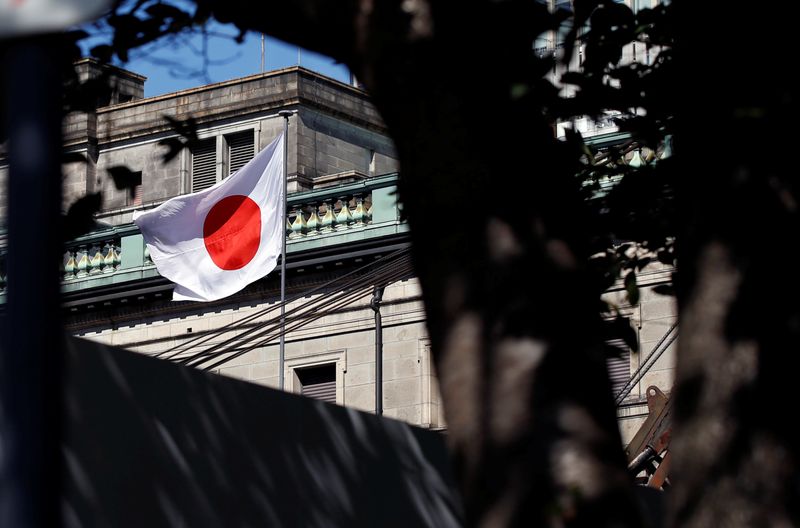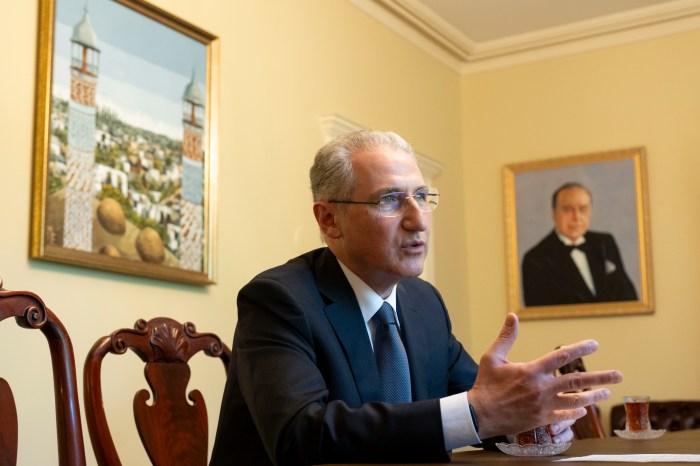TOKYO (Reuters) – The coronavirus may offer the Bank of Japan justification to scrap what has become an obsolete, largely symbolic bond-buying target as it takes stronger action to cushion the economic blow from the pandemic, analysts say.
But it could push the BOJ closer to debt monetisation, or direct underwriting of government debt, as Japan joins other countries in deploying unprecedented spending to combat the widening fallout of the health crisis.
The BOJ sets interest rates as its main policy target under yield curve control (YCC), pledging to guide short-term rates at -0.1% and the 10-year bond yield around zero.
The central bank also has loose guidance to buy government bonds so its balance of holdings increases at an annual pace of roughly 80 trillion yen ($743 billion) – a remnant of the previous quantitative easing policy.
The BOJ will discuss scrapping that guidance at its policy meeting on Monday, the Nikkei newspaper reported, in a show of resolve to buy unlimited amounts of bonds.
Finance Minister Taro Aso knocked down the report, telling reporters on Friday that nothing had been decided on how the finance ministry could cooperate with the BOJ.
A government official declined to confirm or deny the report. But the official, who was familiar with the bank’s thinking, told Reuters that YCC was already an “almighty program” that allows the BOJ to ramp up or scale down bond buying flexibly.
“Still, the BOJ may feel the need to send out a message to the public that it’s doing whatever it can with the government to combat the virus” such as through bigger bond buying, the official said.
Sources had told Reuters that the BOJ is expected at next week’s rate review to take further steps to ease funding strains for companies hit by the pandemic, such as boosting purchases of corporate bonds and commercial debt.
Removing the guidance will largely be a symbolic move. Actual bond buying by the BOJ has slowed to an annual pace of less than 20 trillion yen, as the bank’s huge presence in the market allows it to control yields with fewer purchases.
Past attempts by the BOJ bureaucrats to remove the outdated guidance have been hampered by proponents of aggressive monetary easing in the nine-member board, sources familiar with the bank’s thinking say.
“The BOJ was always looking for a timing to take out the bond-buying guidance. By coincidence, it has a perfect opportunity to do so now,” said Mari Iwashita, chief market economist at Daiwa Securities.
By taking out the guidance and selling the move as a pledge to buy bonds in unlimited quantities, the BOJ can fend off criticism from politicians that it wasn’t acting as aggressively as the U.S. Federal Reserve, which pledged to buy as many bonds as needed to calm markets and funnel liquidity to firms.
The move, reported as coming next week, may also give the BOJ more freedom to whittle down its massive bond purchases once the economy is back on its feet, some analysts say.
“By taking out the guidance, the BOJ may be able to smoothly taper its bond buying when the right time comes without causing unnecessary confusion in markets,” said Masaki Kuwahara, senior economist at Nomura Securities.
For the time being, however, the BOJ will face pressure to keep borrowing costs low for the government, which plans a record $1.1 trillion yen stimulus package to prevent a deep recession.
“The government could keep issuing huge amounts of bonds to finance more stimulus measures to combat the pandemic,” which may fuel concerns over whether it can keep selling bonds smoothly, said Ryutaro Kono, chief Japan economist at BNP Paribas.
“By pledging to buy an unlimited amount of bonds, the BOJ could alleviate such concerns. It would also send a message to the public it was working side by side with the government to beat the pandemic,” Kono said.
(Reporting by Leika Kihara, Tetsushi Kajimoto; additional reporting by David Dolan and Kaori Kaneko; Editing by Mark Heinrich and Gerry Doyle)


















